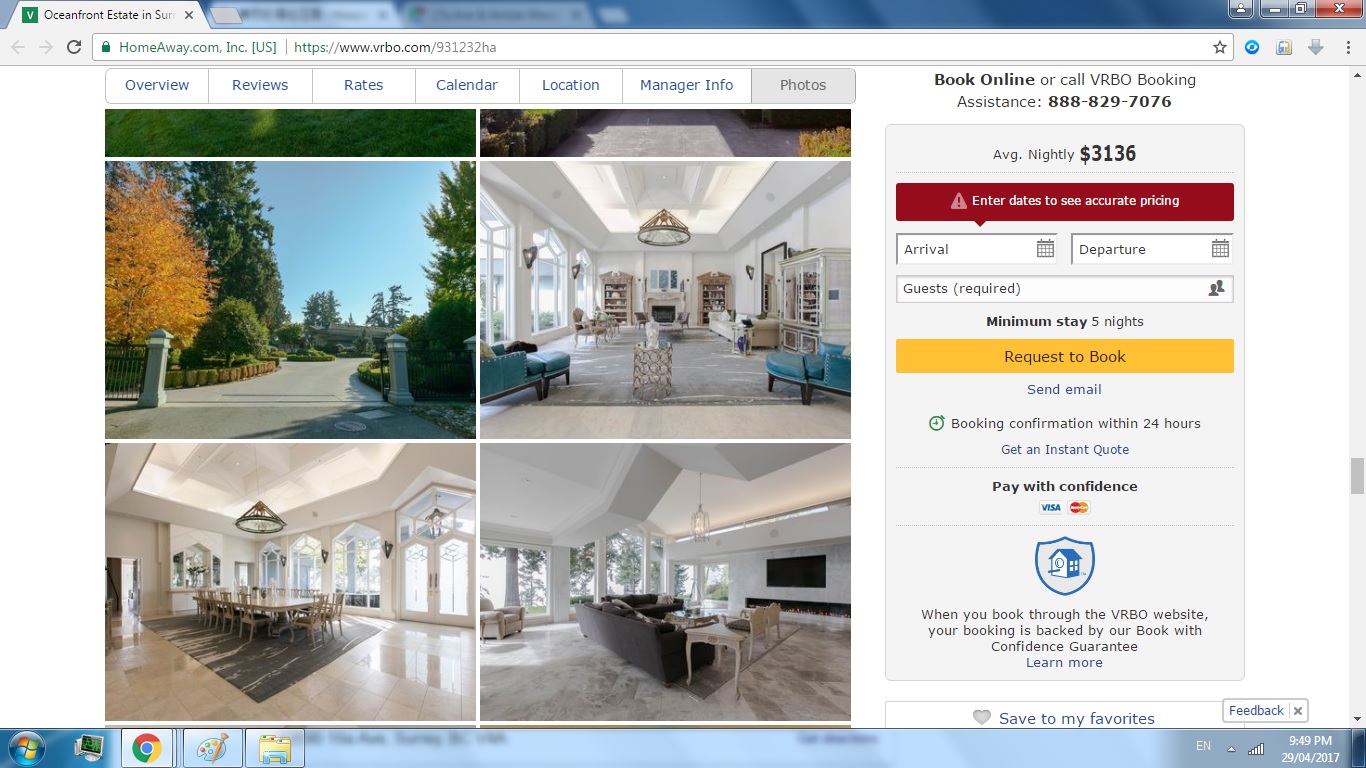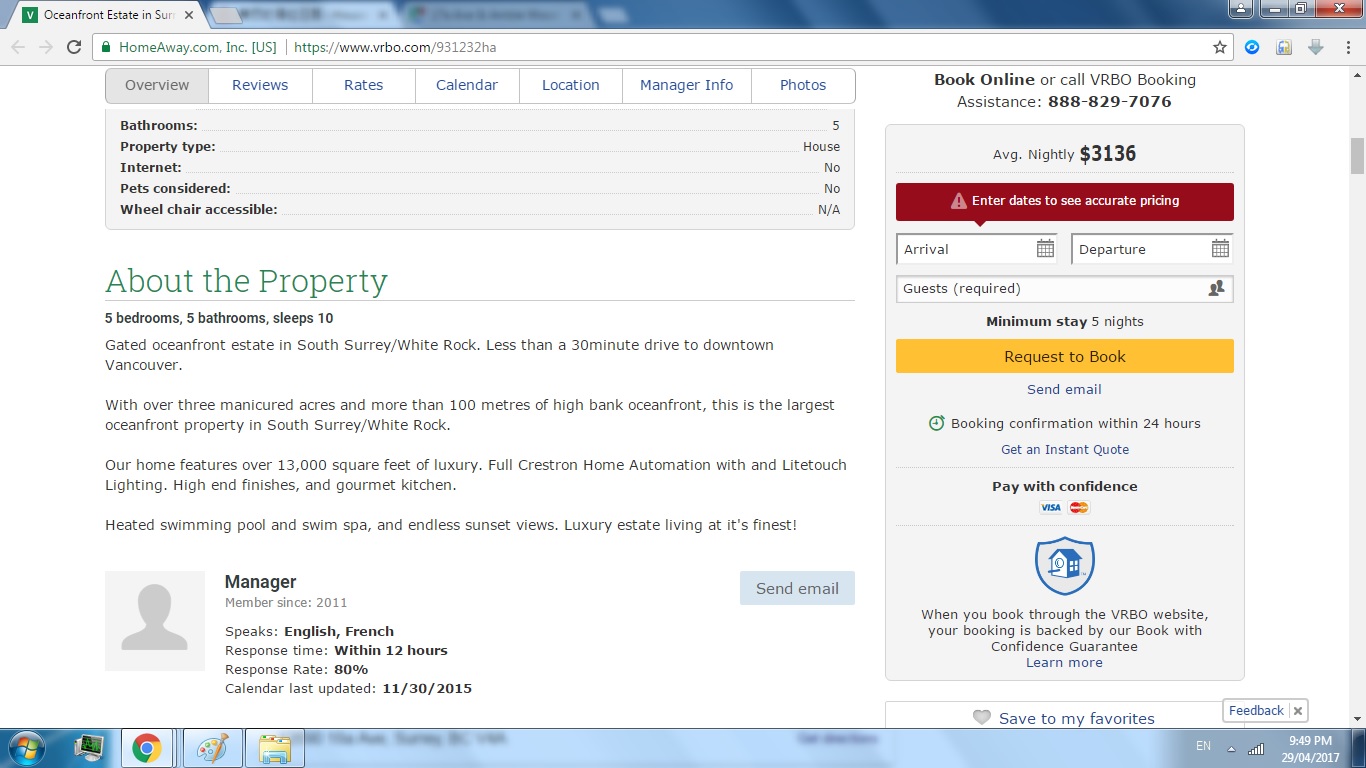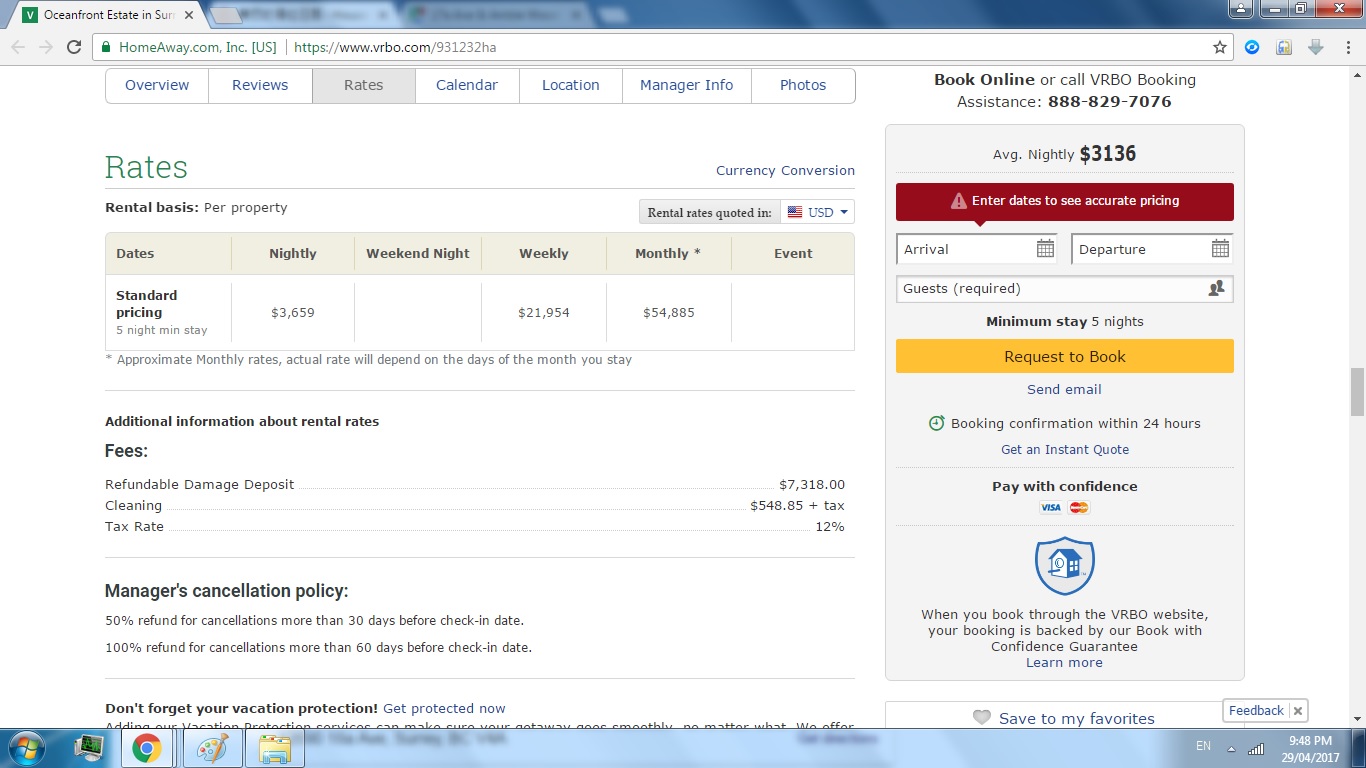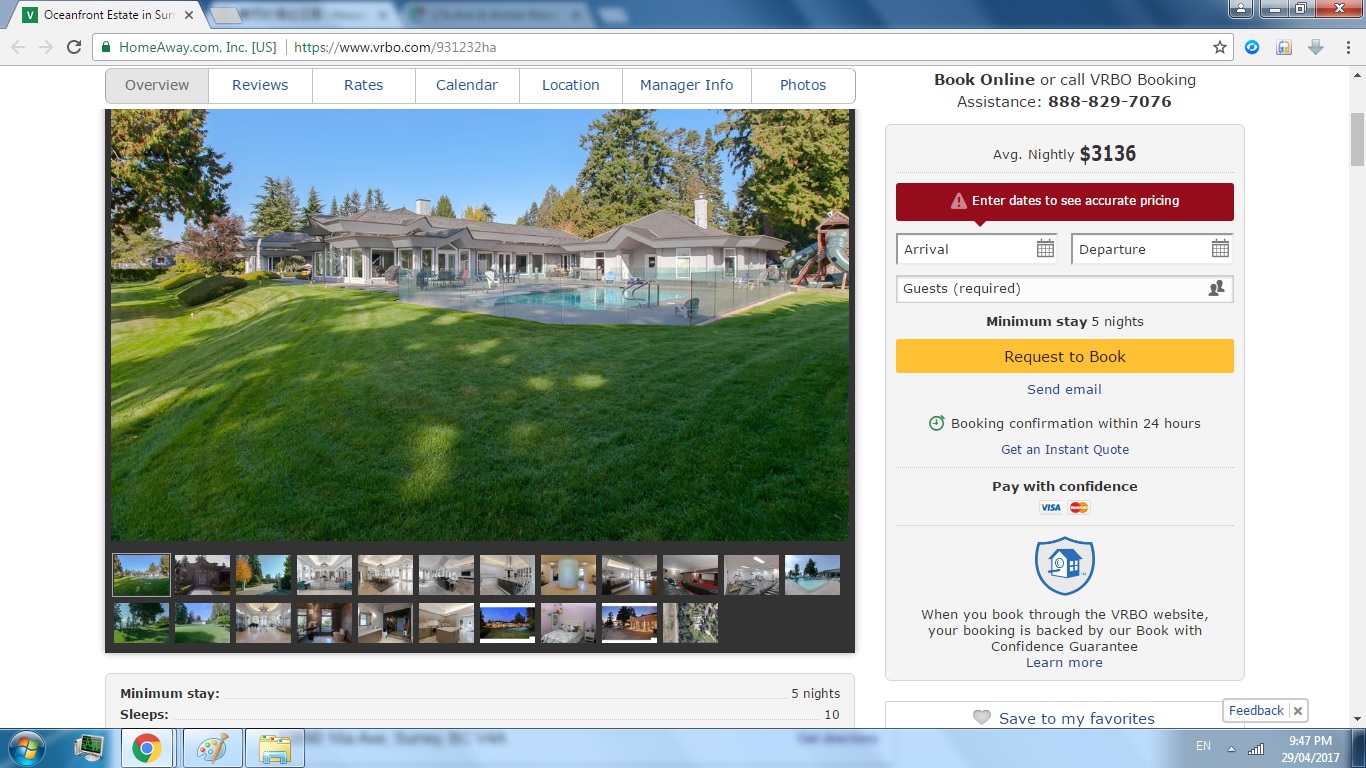City of Surrey ignoring illegal Airbnb complaints

By Lisa Tanh
The City of Surrey isn’t enforcing bylaws against illegal Airbnbs while not publicly announcing that such short-term rentals are unlawful despite years of complaints.
Bruce, a Surrey resident who asked to not use his legal name for privacy reasons, showed ThinkPol several reports of illegal short-term rental listings (STRs) he made to the city, which would sometimes create a file number but would rarely follow-up. Since 2016, the reported STRs continue to operate, increase nightly rates and book up for months. To date, the city has yet to inform the public that STRs like Airbnb are illegal through an announcement or their website — leaving many property owners unaware.
“The [city] has a duty to the citizens to make sure that policies are being conveyed,” Bruce said.
According to Bruce, there are property owners marketing homes as “vacation rentals” on websites like Airbnb and Homeaway.
“It appears to be a year round business for most of these STR operators,” Bruce said, adding that STRs are limiting the city’s housing supply.
Jaspreet Rehal, the manager of public safety operations for the city, said when it comes to STRs, only bed and breakfasts are allowed. Bed and breakfasts must be in an area zoned for commercial use, have a business license for bed and breakfasts and be operated by the owner.
“It’s restricted to no more than 30 days in a 12-month period,” Rehal said. “We do not permit the kind of short-term Airbnb rentals.”
Rehal said while this information is not on the city’s website, the “zoning bylaws are there.”
“That’s what does it,” Rehal said. “And then, you know, there’s the business license bylaw for bed and breakfasts.”
On the city’s website, when a user searches “short-term rentals,” they would not find a page on zoning or bed and breakfast bylaws. They would have to know to search “bed and breakfast” to find a “Home-Based Business Regulations” page[1]http://www.surrey.ca/business-economic-development/1454.aspx for information on bed and breakfast operations.
Bruce believes STRs continue to operate due to the city not enforcing bylaws and misinforming the public.
He discovered a Business in Vancouver (BIV) article[2]https://biv.com/article/2017/08/restrictions-loom-short-term-rentals that said, “There are no restrictions specifically aimed at short-term rentals in Surrey, according to acting general manager of planning and development, Ron Hintsche.” Rehal said he was unaware of the article and that “nothing regulates or permits” STRs like Airbnb.
“You cannot blame people if they read that and ran with it,” Bruce said. “Then all of a sudden, they get knocks on their doors from bylaws going, ‘You’re in violation of bylaws.’ They gotta make sure their position is clear.”
ThinkPol asked B.C. Housing Minister Selina Robinson, about solutions to tackle STRs that are limiting Surrey’s housing supply.
In an emailed statement, media officer, Lindsay Byers, said, “Municipalities have the power to set and enforce rules around short-term accommodation. Owners considering renting out their property through Airbnb or other short-term vacation rental services should make sure they comply with local government and strata bylaws and have appropriate insurance coverage.”
Byers said the province is investing $5 million over three years to help local governments respond to community housing needs. They’re also investing $7 billion over 10 years to build more affordable housing for British Columbians — including rental homes.
References
| 1. | ↑ | http://www.surrey.ca/business-economic-development/1454.aspx |
| 2. | ↑ | https://biv.com/article/2017/08/restrictions-loom-short-term-rentals |






